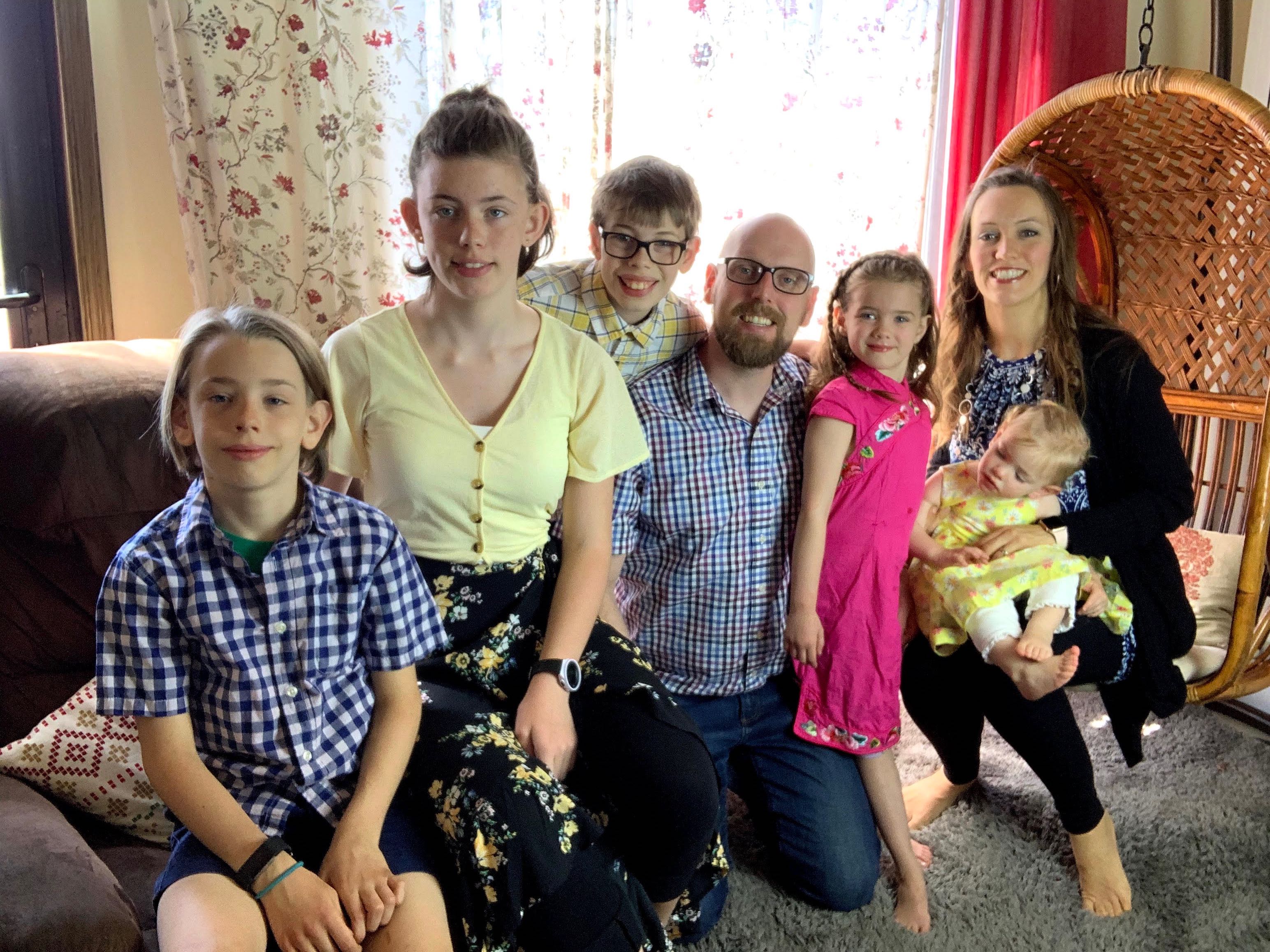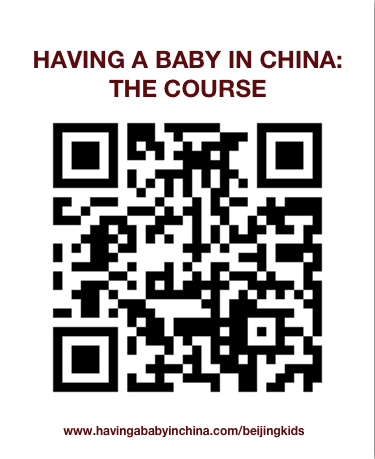Kids can bring all sorts of joy to a family, but having them isn’t easy. Those with children will freely tell you, no two experiences are the same. Pregnancies and procedures may share similarities, but that’s about it. The rest consists of expecting the unexpected, hoping for the best, and preparing for the worst.
However, navigating the vast landscape of the unexpected is even more challenging when you are expecting abroad. From differences in language, healthcare systems, or even the culture around childbirth, bringing a bundle of joy into the world can be transformed from a bit nerve-racking, yet joyous, to a panic-inducing experience.
China, in this respect, presents parents-to-be with the ultimate list of unknowns, as the workings of the healthcare system here remain a mystery into which only a select few foreigners are initiated.

Jeremy & Jacquelyn Carman with their kids
Jeremy Carman and his wife Jacquelyn are one of those lucky few foreign couples that have learned how to make the Chinese healthcare system work for them. As parents of five, four of their kids were born in China.
“Our first was born at Peking Union Medical College Hospital,” explains Carman. “We didn’t have any insurance. We didn’t speak any Chinese. And we had no idea what to expect. It was such a memorable and monumental time in our lives. There was just so much we didn’t understand.”
It is from this and subsequent experiences that the Carmans sought to provide other nervous, inexperienced expat parents with the wealth of knowledge amassed over their years in China. “When we became pregnant with our first child, we were freaked out. We had no idea what it was like to have a baby – let alone have one in a foreign country,” says Carman. “We had a ton of questions that we were asking on Internet forums, but there wasn’t much information available at that time. So, after the birth of our second child in 2009, people were now asking us for tips! At one point, we were replying to so many emails that we decided that we needed to share this with as many people as possible.”
And that is how havingababyinchina.com was born. a platform dedicated to providing expat parents with information on what to expect when expecting in China.
One of the hardest decisions to make for parents is the hospital. Each choice has its benefits and deterrents. And in a country like China, there is a wide variation in experiences and services depending on the option you choose. Havingababy.com offers a video course on how to choose a hospital depending on your needs and birth plan, and also prepares you for what you might experience. At a minimum, expectant parents can choose one of five choices: birth at a local public hospital, birth at a local private hospital, birth at the international hospital, returning to their home country for delivery, and finally, a liaison service.
 A surplus of choice doesn’t, however, mean a surplus of excellent options. It is up to parents to weigh the benefits versus the possible disadvantages of one option over another. As Carman explains, “I remember at one hospital, where we were doing prenatal visits, the doctor told us that our baby didn’t appear to have a bladder! We were so worried and afraid as we searched for a hospital that had a better ultrasound machine. Our baby was born with a healthy bladder, but it was an extremely stressful time.”
A surplus of choice doesn’t, however, mean a surplus of excellent options. It is up to parents to weigh the benefits versus the possible disadvantages of one option over another. As Carman explains, “I remember at one hospital, where we were doing prenatal visits, the doctor told us that our baby didn’t appear to have a bladder! We were so worried and afraid as we searched for a hospital that had a better ultrasound machine. Our baby was born with a healthy bladder, but it was an extremely stressful time.”
If the equipment is a serious consideration for you, then public Chinese hospitals might be the way to go since they are funded by the government and as such, receive the latest equipment and the most qualified doctors. However, you might have to contend with a language barrier, possible shared accommodation, and a confusing bureaucratic system. International hospitals do offer private accommodation and have bilingual staff, however, they are financially prohibitive, costing four to ten times more than your average public hospital. Thus it might not be a feasible option for those without insurance. Or you might just want your family and friends there with you at your birth, and so returning home to have the baby seems more appealing. You will still have to contend with the risks of travel in your third trimester, the chance that your partner might not get paternity leave in time to attend the birth, and also, it can be quite expensive.
These and many more considerations are explored in detail in the ‘Choosing a Hospital’ lesson, moderated by Ruth Greene, a certified doula and mom of four with her own extensive experience in dealing with Chinese hospitals.
“We’ve collaborated with some incredible childbirth experts to put this course together,” says Carman of the entire course. “These experts have combined decades of experience and have put together some awesome lessons that take you from choosing a hospital to breastfeeding. Our goal is to cover each step along the journey of having a baby in China.” Currently, six lessons have been published on the havingababyinchina.com platform, with more to be uploaded in the coming months.
Beijingkids readers can access the full ‘Choosing a Hospital’ course for free by clicking here or by scanning the QR code below.

Photos: Jeremy Carman, Unsplash




